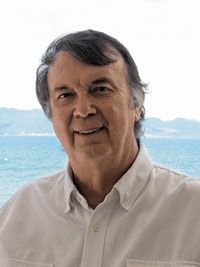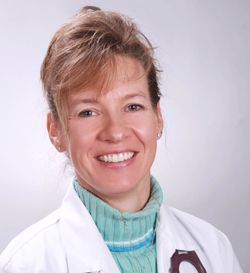How CVC Washington D.C. inspired me to pursue happiness in veterinary medicine
Practice management speaker Dr. Mike Paul told CVC Washington, D.C., attendees to take charge of their lives and know what make them happy.
One of the great opportunities in attending a veterinary conference is the multitude of ideas that invade your conscious and subconscious mind days and weeks after the event.

Dr. Mike PaulThat's what happened to me after a session with Dr. Mike Paul, a dvm360 magazine contributor, at CVC Washington D.C. His one-hour workshop on setting goals in one's professional and personal life was simple, yet I kept feeling its profound impact days later.
Paul concentrated on three principles:
> People need and want to be happy.
> If you aren't happy with your current results, change them.
> Spontaneous change is unlikely.
People need and want to be happy

Heike Jung, DVMWe started it all by thinking about happiness. What makes you happy? Money will probably be on the bottom of your list, because it's been proven that earning $75,000 a year is your happiness quotient. Anything beyond that won't make you happier, according to the research.
Consider other possible answers to the happiness question: Family and friends? Faith? Community? Career and profession? Whatever “it” is, that's where you should focus your attention and priorities.
If you aren't happy with your current results, change them
If you aren't happy with family and friends, invest more time in those relationships. If you aren't happy with your career, profession or the money you're making, change it. Whatever is causing your unhappiness, change it.
Dr. Paul also emphasized these key points:
> Commit to change by opening your eyes to what isn't working.
> Be honest with yourself.
> Prioritize the changes necessary to move you towards happiness.
> Revisit your goals often and make necessary changes.
> Lean on others and celebrate every little success.
Spontaneous change is unlikely
Normal people are drawn to enjoyment and repelled by tension and anxiety. Don't stick around if something isn't making you happy. However, you should remember that change is difficult, and spontaneous change is unlikely.
Change isn't easy-the beginning requires hand-holding. Dr. Paul recommended we invest in a life coach, a counselor or a therapist. Make sure your circle of friends matches your values. If it doesn't feel right, it isn't right.
Dr. Paul also recommended a few books to help on the path to personal fulfillment and change:
> The Happiness Hypothesis: Finding Modern Truth in Ancient Wisdom (Basic Books, 2005) by Jonathan Haidt
> Status Anxiety (Pantheon, 2004) by Alain De Botton
> The Mindset: The New Psychology of Success (Ballantine, 2007) by Carol Dweck.
Long after the glow from this conference has faded, I'm still appreciating these lessons. I hope you too can experience the impact a great coach or an inspiring session like this can have on your personal and professional life.
Dr. Heike Jung focuses on people's emotional safety in the workplace as a professional team building and leadership coach for veterinary practices. Dr. Jung is author of Even Unicorns Need to Learn How to Fly.